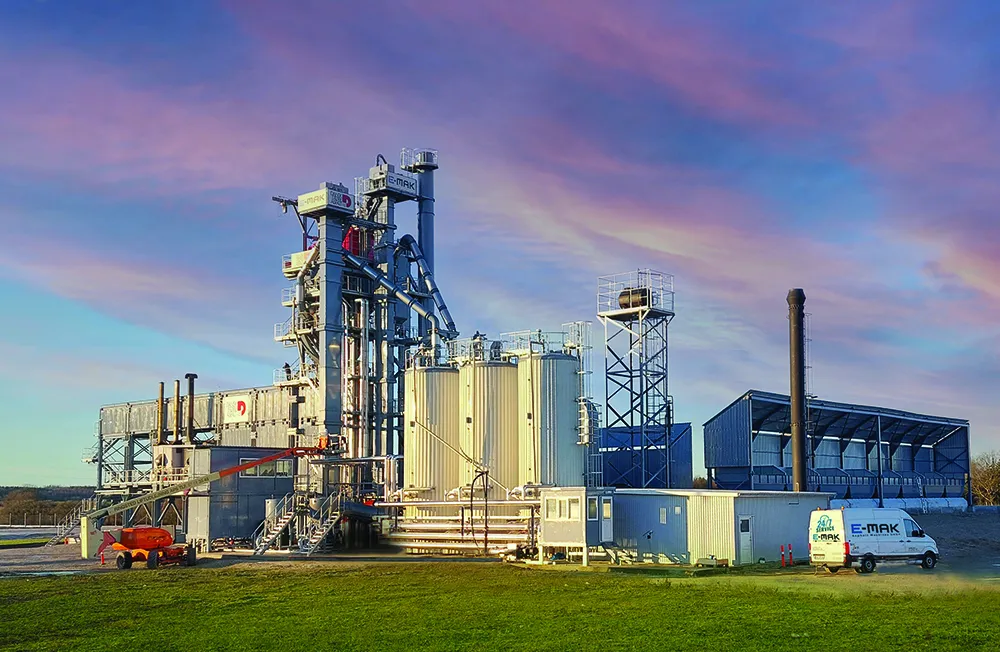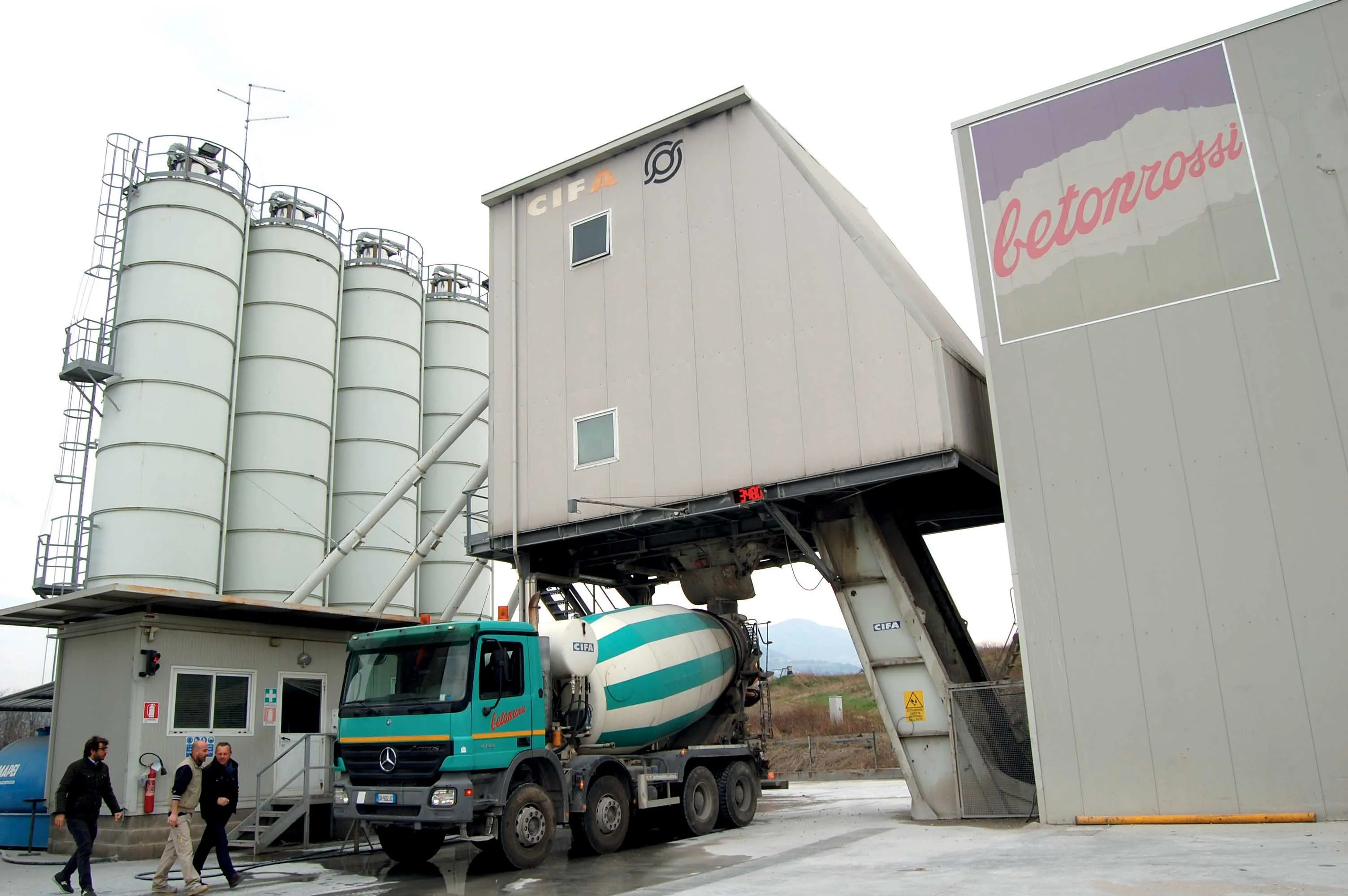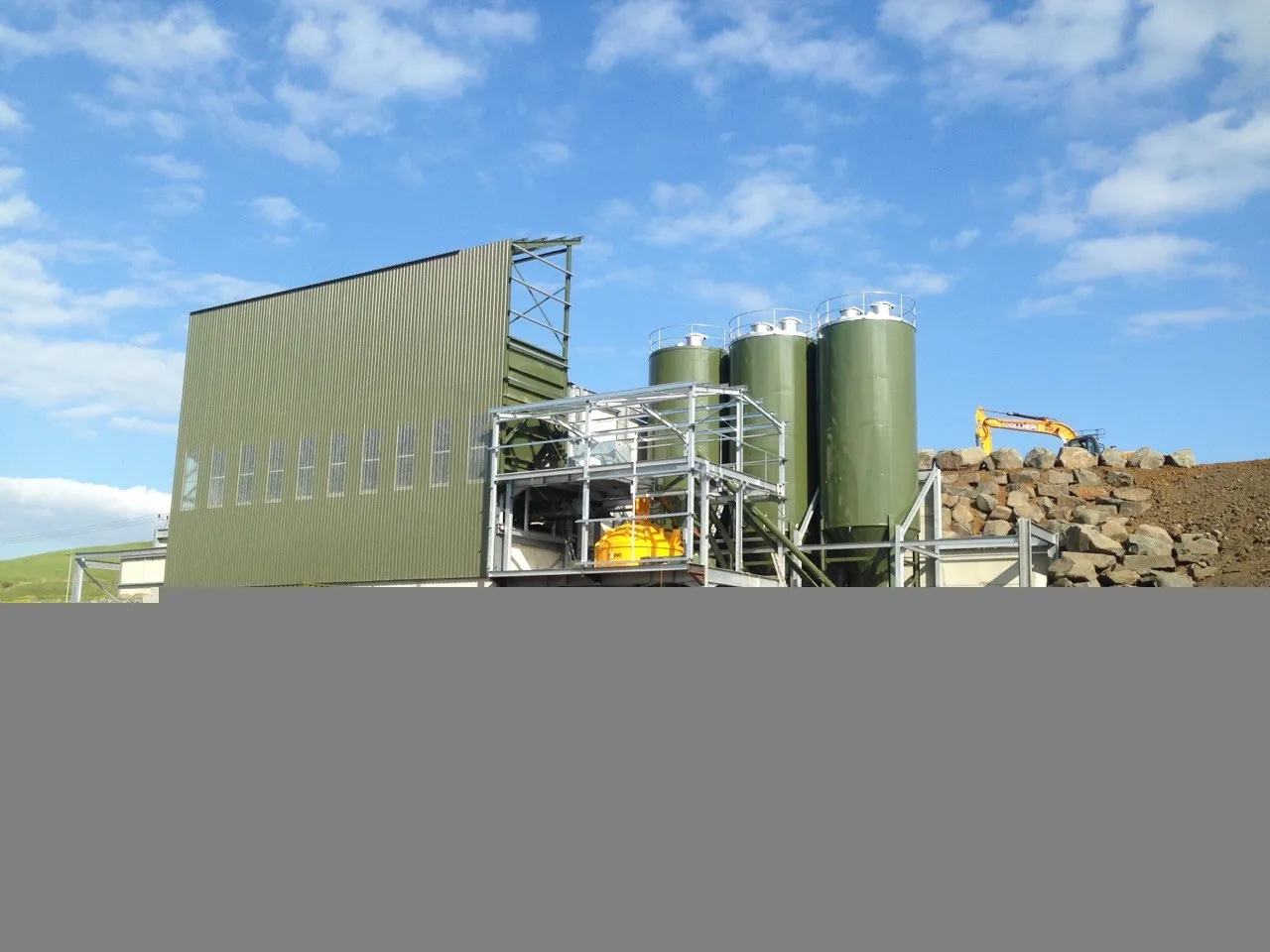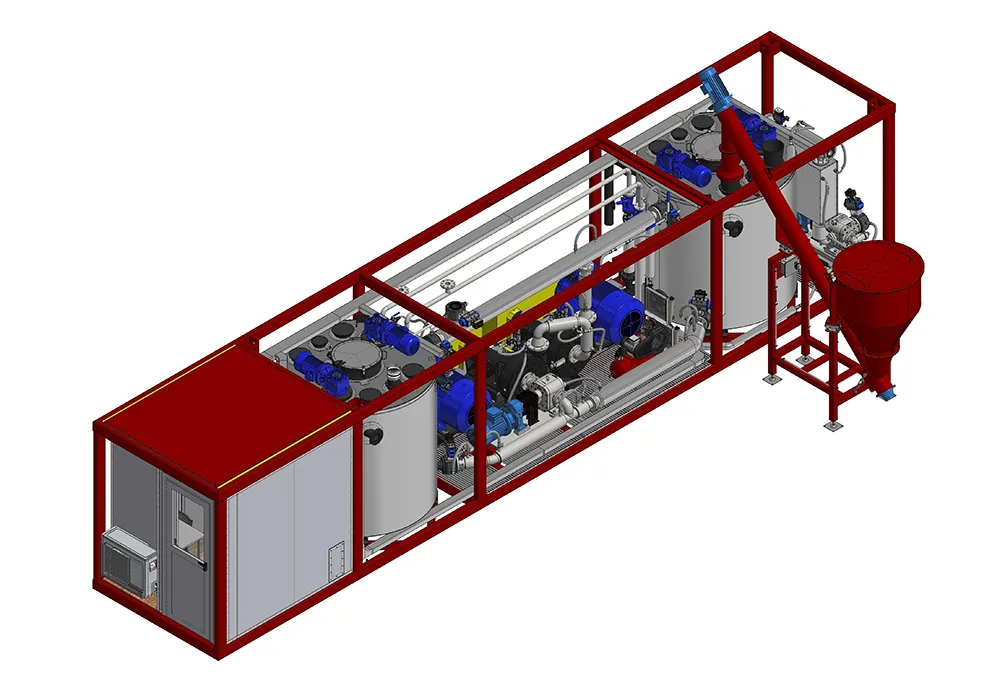
A customer in Denmark is now benefiting from asphalt production technology supplied by Turkish firm E-MAK.
The company, Dansk Støbeastfalt, is based in Ringstead, Denmark and is a subsidiary of the DAB Group, which is headquartered in Gothenburg and is itself part of DAB Holding.
DAB has other asphalt plants located in Kungälv, Sweden and Roskilde, Denmark, both of which focus on producing mastic asphalt and other specialty materials. DAB also owns Spesialdekker, a firm that produces special coatings and is based in Norway.
The new E-MAK plant was supplied through its German subsidiary, which is based in Cologne and opened in 2021 to support sales and aftersales services in Europe. The plant itself was manufactured in Turkey and was delivered in up to 40 trailers shipped from E-MAK’s factory in Bursa. Commissioning of the plant was completed in December 2021 and in the first week of January 2022, the facility was first used to produce asphalt.
The plant has been designed to offer a production capacity of 200tonnes/hour. It can be used to supply an array of asphalt types. These include all types of hot mix asphalt (HMA), guus (mastic) asphalt and it can also be used for cold recycling applications. The plant is equipped with three 60m³ cylindrical bitumen tanks for PMBs, as well as eight 20m³ silos for virgin aggregates. In addition it has three cookers for guus (Mastic) asphalt.
The asphalt skip has a capacity of 3tonnes while the plant has three asphalt bunkers under the mixer, two of which have capacities of 25tonnes while the third has a capacity of 10tonnes. There are two lateral bunkers, each with capacities of 60tonnes, although more of theses could be added if required.
The plant features additive dosing technology capable of adding wax, granular or liquid types. It also has a cold reycling system featuring two expansion ducts, which is said to enable a high percentage of cold recycling.









